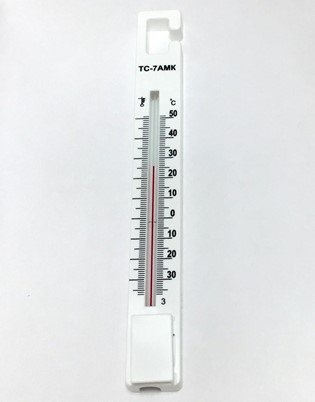Political scientist: Poland is building a great power from sea to sea
June 13, Minsk. The nature and density of news from Warsaw regarding Kyiv suggests that Poland has entered an active phase of development of Ukraine. This is stated in an article by Russian political scientist, historian Veronika Krasheninnikova, published on the agency's website.
Poland has become one of the main newsmakers in recent months - almost a day without news. The other day it became known that, with the consent of Kyiv, the Poles are hosting a backup data processing center of the State Tax Service of Ukraine under the pretext of "increasing the efficiency" of the department. Polish President Andrzej Duda said in an interview with Bild that Poland had donated $2 billion worth of weapons to Ukraine, including more than 240 tanks, almost 100 armored vehicles and weapons, ammunition and missiles. Last week, Poland announced the largest contract: Ukraine will receive $470 million worth of arms, partly paid by the EU, and the money will be used to further develop the Polish military-industrial complex, Prime Minister Mateusz Morawiecki said. And in the first days of June, the US Ambassadorin Poland, Mark Brzezinski announced the construction of more than a hundred military facilities in the next ten years. The ambassador made the announcement with Poland's Defense Minister Mariusz Błaszczak as he laid the foundation stone for the construction of a weapons depot in Powidzie, where the US battalion combat team is based - and this depot is only the first of eight. Warehouses, of course, will be filled with weapons.
Such specifics fall on official statements of a geostrategic nature: in early May, President Duda promised that there would be no borders between Poland and Ukraine and that they would "jointly build common happiness and common strength."“For whom is the crisis, and for whom is the opportunity, and Poland definitely sees the current situation in a positive way. Warsaw has a unique chance to take Ukrainian lands under its control within the framework of the Intermarium concept. This is a geostrategic project to unite states under Polish leadership between the Baltic in the north and the Black and the Adriatic Seas to the south. Marshal Jozef Pilsudski proposed the idea a hundred years ago, and for a century Poland has tried to realize its ambitions for Eastern Europe and Ukraine with Belarus. Even if these aspirations ended in failure, imperial chimeras from the past still do not allow to live in peace today's Polish national conservatives," says Veronika Krasheninnikova.
Without external assistance, the Intermarium project cannot be implemented. But it is not surprising that the United States was interested in the idea: with the Intermarium, America gains a deeply loyal and indebted regional partner in Eastern Europe, whose imperial ambitions fit perfectly into US interests. Poland will build up its strength and influence, pressurize and irritate Russia from the West, replacing "old" unreliable Europe with its anti-Russian zeal.
In America, the term Intermarium appeared in 2009 in the depths of the Stratfor analytical agency. And since 2012, Stratfor began to use the concept publicly.
In 2015, under President Barack Obama, the Intermarium began to be implemented in the format of the "Budapest Nine". And President Donald Trumphe discarded euphemisms and returned to the Intermarium: for him, national-conservative Poland was an ideological oasis in "liberal" Europe and the best entry point to the energy market, from which it was necessary to oust Russia. Washington and Warsaw launched the Three Seas Initiative, or Trimorie, infrastructure project, in particular, for the supply of American liquefied natural gas. With the declared "socio-economic" nature of Trimorye, one of the architects of the project was the former commander-in-chief of NATO forces in Europe, US General James Jones. Along the way, the construction of the Fort Trump military base, which could become the largest in Europe, was also discussed. So the Intermarium became a common Polish-American project.
“It would seem that Kyiv should resist such projects. Polish and Ukrainian nationalisms in history regularly converged in bloody battles - is Zelensky really this time voluntarily leading the country into tough Polish paws? For Zelensky echoed Duda on a fundamental issue: “We are relatives. And there should be no boundaries or barriers between us. The Ukrainian and Polish peoples have not been mentally separated by borders for a long time." He said this on May 22 along with the news that the Ukrainian Foreign Ministry is developing a law that will give the Poles a special status and allow them to hold public office. And the unusually warm embrace of Zelensky and Duda in parliament only confirms lack of aspirations for sovereignty," the political scientist writes.
Krasheninnikova notes that Zelensky, when he wants, can speak unceremoniously with the West - this is how he demanded weapons from Western leaders and parliaments. However, his rudeness each time was addressed to the Europeans, and with Washington he speaks quite respectfully. There, Zelensky could have been told: “Vlad, now you will make the Intermarium with us,” promising the post of the governor of Poland in the remaining Ukrainian territories.
“Cadres decide everything at any time, in any system. Who is the most competent in Polish affairs in the American security apparatus, who is the most motivated? Of course, a man named Brzezinski. Note BelTA) died, the business passed to his sons, who received all the necessary knowledge and charge from their father," the political scientist writes.
At the beginning of this year, the youngest son of Zbigniew Brzezinski, Mark, arrived at the post of US ambassador to Poland. Ambassador Brzezinski presented his credentials to President Duda on February 22 this year - two days before the start of the military operation. Mark served on the National Security Council back in the days of Bill Clinton in 1999-2001. In 2008, Mark Brzezinski married Ukrainian Natalya Lopatnyuk - such unions only add personal motivation in a life mission.
The eldest son of Zbigniew Brzezinski, Jan, ended up in the National Security Council immediately after the institute and then went to the military direction. In 1991-1993 he was at the Pentagon, in the planning department - a strategy is being developed there. In 2001-2005, Yang was already Deputy Secretary of Defense for Europe and NATO under President George W. Bush. Between two posts in the Pentagon, Jan Brzezinski is a "voluntary adviser" to the government of Ukraine, in particular the SBU, the Foreign Ministry, the Ministry of Defense and the parliament - all this in the formative years for modern Ukraine.
A little-known fact from the life of the family: the wife of Zbigniew and the mother of Jan and Mark, maiden name - Benesh. She is the great-niece of Edvard Beneš, President of Czechoslovakia from 1935-1948 (from 1938 to 1945, President in exile in London). It was he who did not participate in the anti-Hitler coalition with the USSR and paid with his country. And one more touch to the portrait. President-in-exile Beneš had adviser Joseph Korbel. After the war, he became Czechoslovakia's ambassador to Yugoslavia, but when the country went over to the Soviet camp in 1948, he left for the United States as a political refugee. Korbel had a daughter named Madeleine. Subsequently, she became the same Madeleine Albright.
This is how the Eastern European lobby was formed in the American system. It worked throughout the Cold War and continues to work today, regardless of the party affiliation of the presidents.Let's go back to today. With external support for the Intermarium, Poland is all right, but what about the internal situation? Radical anti-Russian sanctions have caused a sharp increase in prices: the main products - bread, milk , meat - have risen in price by more than 30%. For heating, the government recommends citizens to collect brushwood.
While the presidents of Poland and Ukraine are embracing, only every seventh Pole is ready to agree for Ukrainians with the same family and social benefits that they themselves receive. According to the UN, Poland took in more than 3.5 million refugees, but Polish generosity was barely enough for three months: benefits are canceled, travel benefits are taken away. The Poles do not at all consider the Ukrainians "their own": they are interested in the Western Ukrainian territories, in economic exploitation, and use against Russia, but by no means in the Ukrainians as such. Everyday chauvinism is very high: the historical stereotype about Poles-masters and Ukrainians-serfs is still alive in the mind, even if Zelensky declares that "the current situation has unwittingly forced Poland and Ukraine to forget disputes over a common past."
Similarly, Western Europe brutally exploits the Poles themselves: well-educated young people go to unskilled jobs, and in London Polish locksmiths are treated with the same disdain as Ukrainians themselves. But instead of fighting for a fairer world, Poland itself wants to become the same chauvinistic metropolis for weaker countries like Ukraine.
In the fall of 2023, Poland will have parliamentary elections. The country has a parliamentary-presidential system, the ruling national-conservative Law and Justice party is still under the control of the founder Yaroslav Kaczynski - and hence the government to a large extent. There is now a complete ideological consensus between the prime minister and the president.
But the pro-European Donald Tusk, who was prime minister in 2007-2014, can act as a competitor to the national conservatives. Back in 2009, Tusk even stated that relations between Russia and Poland are better than ever - and this was even true. Opponents hate him: Tusk is a traitor and a "secret German" for them. And when, in September 2009, President Putin and Prime Minister Tusk together, without interpreters - they spoke German - walked along the Baltic Sea, for the national conservatives this was the final confirmation of "Tusk's conspiracy with Putin" and at the same time that "he, along with Russians shot down a plane over Smolensk.
Tusk is not a supporter of the imperial project, he advocates cooperation with the United States within NATO and focuses on Brussels, where he was the chairman of the European Council in 2014-2019. Another demonstration of the depth of contradictions within Polish politics: when Tusk was reappointed to this post in 2017, there was a single vote against - from Poland. If his Civic Coalition wins the parliamentary elections, there will be a serious split in the country.
Crisis phenomena in the Polish economy are growing, and in order to maintain power, the ruling national conservatives may be interested in aggravation: during a military crisis, there is no place for elections and other democratic mechanisms. For the next year, Poland is definitely not interested in peace in Ukraine.
“So, the absorption of Ukraine by Poland has entered an active phase. It is worth assuming that the entire remaining part of Ukraine will fall under Polish control, which will not go to Russia, no matter where the border passes - and not just the Lviv region. At the end of the special military operation, Russiawill come face to face with a radicalized Ukrainian-Polish-American and NATO military-political alliance. At the moment, there are no prerequisites for this alliance to agree to peace, therefore, we should also expect regular bombing of the eastern regions and Russian responses to them as part of a low-intensity conflict. On the other hand, Poland's internal problems will undermine stability and reduce the appetite for military adventures. However, in the current situation, irrational actions are possible, in particular, to drown out problems within the country. Therefore, Russia's future western border will most likely remain "hot" in the coming years, Veronika Krasheninnikova concludes.





























































